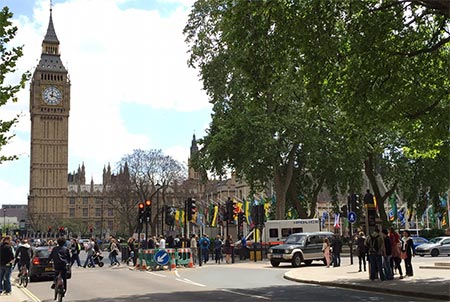UK set for more higher education uncertainty
 With various joint programmes delivered in the Netherlands with the University of Brighton, Wittenborg is essentially also an offshore campus for Brighton. Currently, the two institutes offer four UK master's, in hospitality, tourism, event management and sports business, as well as a double degree in hospitality management and a double degree in business and entrepreneurship. These are to be expanded in 2018 with the addition of degree programmes in education.
With various joint programmes delivered in the Netherlands with the University of Brighton, Wittenborg is essentially also an offshore campus for Brighton. Currently, the two institutes offer four UK master's, in hospitality, tourism, event management and sports business, as well as a double degree in hospitality management and a double degree in business and entrepreneurship. These are to be expanded in 2018 with the addition of degree programmes in education.
Being closely tied with a UK university, events in the UK that effect higher education policies, such as immigration and student tuition fees, are important, but maybe not as much as one would imagine.
In the UK, higher education is not an important factor in election campaigns, however the government of the day often has at least a short term impact on universities, through changes in funding systems, quality assurance regulations and important policies regarding international students.
The recent calling of a 'snap-election' by Prime Minister Theresa May, has brought with it the prospect that current proposed policy changes (the Higher Education Bill) might not be pushed through, and that university fees may be in discussion again, especially if the Labour Party were to regain control, possibly with a coalition government.
However, the current mood of the country seems to back the Conservatives of May and the planned implementation of 'Brexit', and although pollsters can no longer be relied on, what is undeniable is that there is no strong opposition.
If May were to entrench her power with a full and stronger mandate, the Brexit negotiations would possibly be 'harder'. However, signs from the Dutch government are that they, together with other close 'Anglo partners' are already preparing deals that will safeguard their business.
For Wittenborg, little change is expected before 2020, and with UK degrees being recognised around the world no threat is seen to its partnership with Brighton from this perspective. However, there are signs that a hardening of immigration controls on both sides may lead to less possibilities for student and lecturer exchange, which might effect Brighton's flexibility of delivery in the Netherlands by its own staff. Wittenborg does not see this as a great obstacle, confident that it can resource any teaching gaps that might occur.
Student mobility is already effected with the British Border Agency already being overly tough on student visas. This could also change when the UK realises the size of income loss when 'turning away' this important source of financial and intellectual revenue.
WUP 4/5/2017
by J.P Wedgewood
©WUAS Press